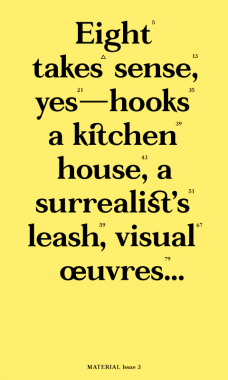
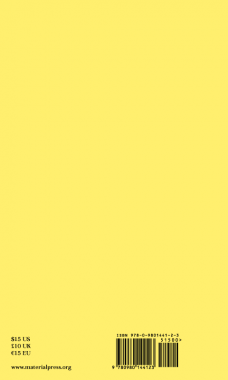
Ginny Cook and Kim Schoen, MATERIAL 3
Softcover, 96 pp. + insert, offset 2/1, 160 x 270 mm
Edition of 500
ISBN 978-0-9801441-2-3
Published by MATERIAL Press
$15.00 ·
MATERIAL exists as a platform for the artist’s voice. Each issue brings together a different group of artists who write, as well as a new collaboration with a graphic designer. During the production of this third issue, our designer Zak Jensen put forth the idea of concatenation — the act of linking together, or the state of being joined (
It was caused by an improbable concatenation of circumstances) (there was a connection between eating that pickle and having that nightmare)
(the joining of hands around the table).
Concatenation (c.1600, from L.L. concatenatus, pp. of concatenare “to link together,” from com- “together”+ catenare, from catena “a chain”) seemed an appropriate word for our editorial method. An unlikely assemblage of texts becomes connected through this process; uncanny linkages emerge. Wyeth appears twice. Performances interact. In this issue: voices that duel, voices that parrot, voices that hypothesize, translate, and meditate, voices that speak simultaneously. As Roland Barthes writes, we have assembled these textual events, as “pleasure in pieces; language in pieces; culture in pieces,” to build upon one another into something new.*
*Roland Barthes, The Pleasure of the Text, trans. Richard Miller (New York: Hill and Wang, 1975), p. 51
CONTRIBUTORS
Farrah Karapetian, Paul Zelevansky, Renee Petropoulous, Nate Harrison, James Welling, Natalie Häusler, Harold Abramowitz, Shana Lutker Stephanie Taylor, Alice Könitz, Frank Chang, and Emily Mast.
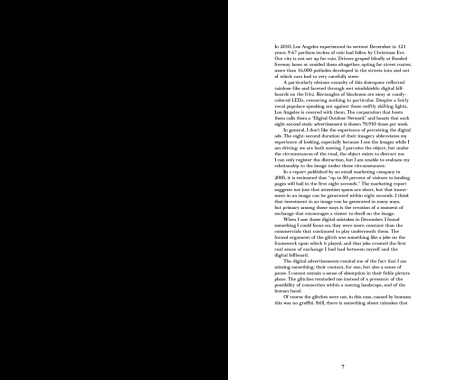
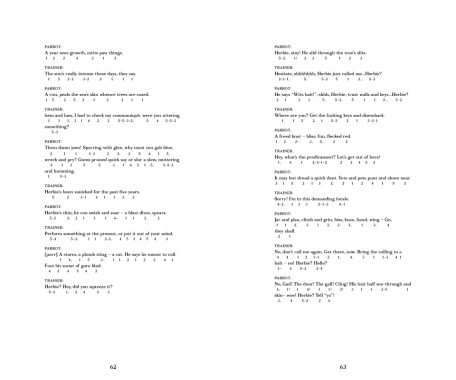
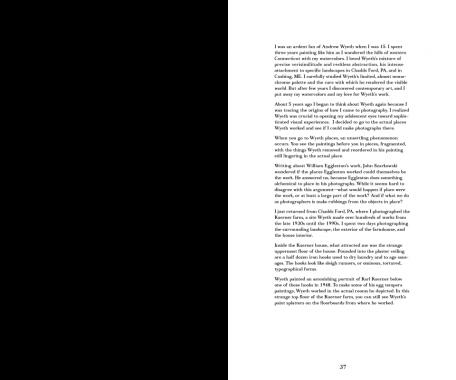
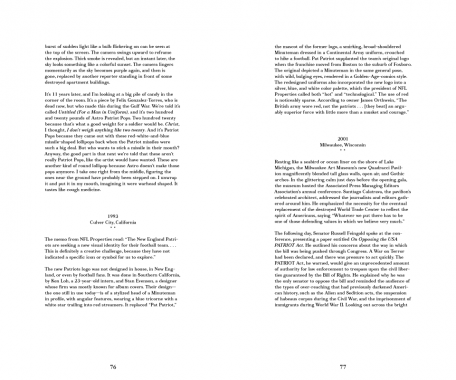
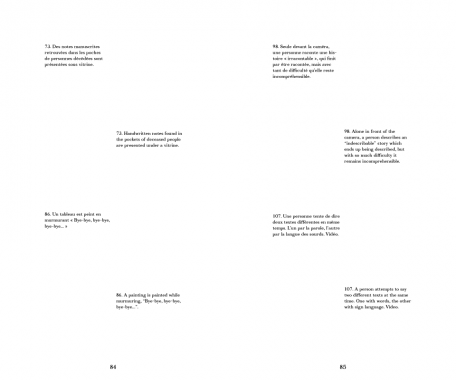
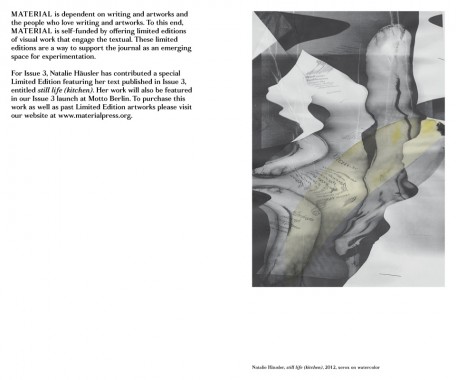
Alice Konitz, Andrew Wyeth, Art, Catherine Guiral, Concatenare, Criticism, Daniel Lucas, Design, Distribution, Dorit Cypis, Emily Mast, Farrah Karapetian, Frank Chang, Ginny Cook, Harold Abramowitz, James Welling, John Stezaker, Jonathan Miles, Kim Schoen, MATERIAL Press, Natalie Häusler, Nate Harrison, Olivier Richon, Paul Zelevansky, Quentin Walesch, Renee Petropoulous, Richard Miller, Roland Barthes, Shana Lutker, Stephanie Taylor, Theory, Thomas Lawson, Typecraft Wood & Jones, Typography, Wendy Schoen, Zak Jensen
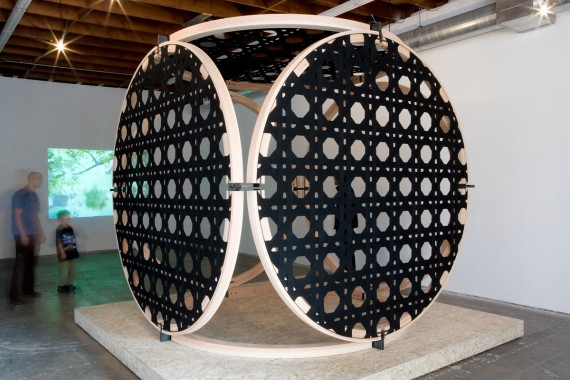
Arthur Ou, Untitled (Pavillion); 2009; Wood, metal, cotton webbing; 8.5 x 8.5 x 8.5 feet
In their first collaborative installation, Arthur Ou and Alice Könitz suggest a reframing of the L.A. landscape in a surprisingly pastoral mode. Each artist created one half of the installation at LAXART, and though the two parts don’t fit seamlessly, they do make a spare but evocative tableau.
Ou’s contribution is a gazebo-like structure, made of six large wooden rings joined in a rounded cube. On two sides of the cube the rings are open, allowing visitors to enter. The other two sides and the roof are crisscrossed with black canvas strips that form an octagonal pattern reminiscent of rattan furniture. The pattern originated in China and the structure itself recalls Chinese garden pavilions that carefully frame specific, often symbolically loaded views.
In this case, the view is Könitz’s video projection. It depicts a group of young people, wearing cardboard headdresses of various geometric shapes, as they embark on a raft across a surprisingly lush section of the L.A. River. Upon reaching their destination, they indulge in a joyous, somewhat raucous outdoor feast.
It’s an unexpected vision of L.A. as a sylvan retreat inhabited by a tribe with an incongruous, Modernist aesthetic. (Anyone familiar with Könitz’s sculptures will recognize her trademark cardboard constructions mimicking High Modernist designs.) Combined with Ou’s more austere take on the garden pavilion, the installation offers a vista point from which to reorient one’s view of L.A.
—Sharon Mizota
LAXART
2640 S La Cienega Blvd
(310) 559-0166
through 16 January 2010
Alice Konitz, Arthur Ou, Kelly Berrie, LAXART, Los Angeles Times, Sharon Mizota








